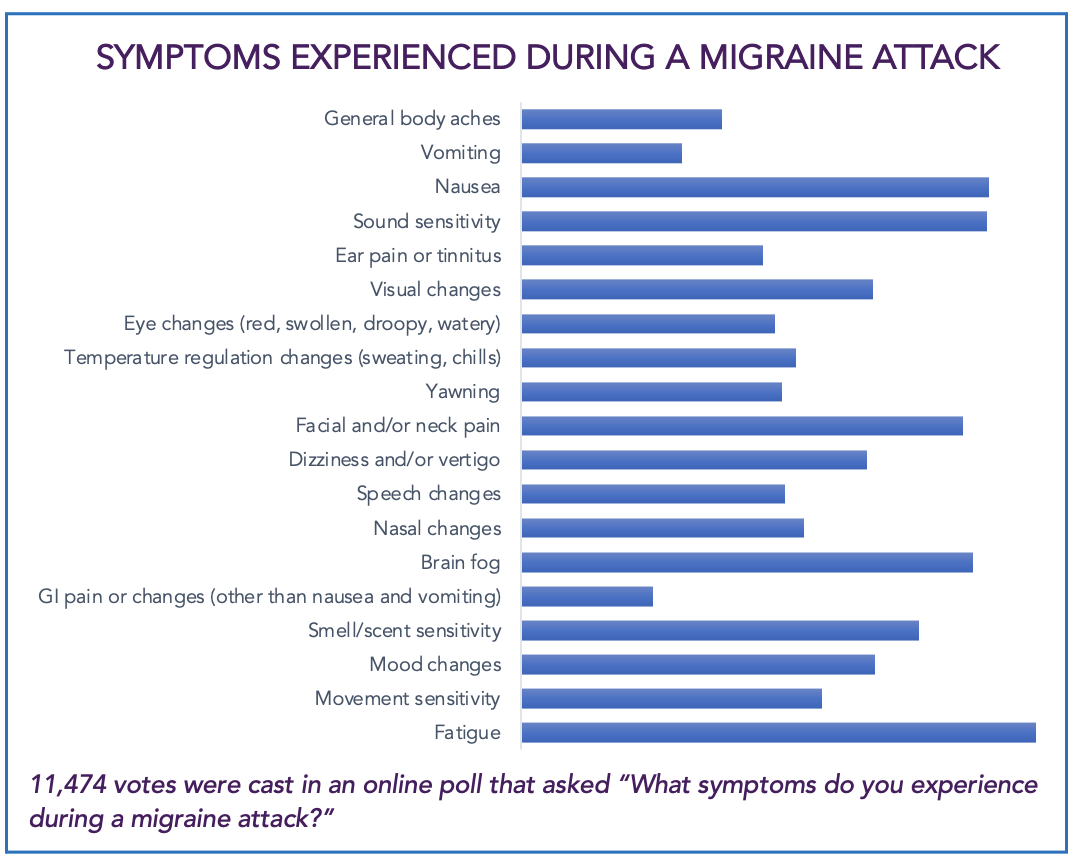When people think about migraine, often what comes to mind is head pain, nausea, and sensitivity to light and sound. These are also the hallmark symptoms commonly used to identify and diagnose migraine. But those with migraine know these are often just the tip of the iceberg.
Over the course of the last several months, this blog has covered the vast variety of symptoms people with migraine experience. Today, we bring that Migraine Symptoms blog series to a close, with the acknowledgement that everyone experiences migraine and its associated symptoms differently. These can range from being a nuisance to having a profound impact on one’s quality of life. They vary from person to person and attack to attack, and frustratingly, can change over time.
A recent poll of the Migraine Meanderings online community revealed the prevalence of a wide variety of symptoms experienced. Nausea, sound sensitivity and fatigue were the most common, followed by brain fog, and facial and/or neck pain.

This poll shows what those of us with migraine have been saying all along–migraine is so much more than just a headache! While we are encouraged to have so many new treatment options available, a clear need for continued education and awareness surrounding this complex neurological disorder remains.
Here are some things you can do to help get the word out:
1. Speak up
Tell your story and talk about your specific set of migraine symptoms. Our friends and loved ones often have no idea what living with migraine entails. Talking openly about what you experience can help raise awareness and make others feel less alone. It can also empower and help you, in addition to discovering that what you experience is the same or similar to other people, which normalizes it and helps reduce stress and anxiety.
2. Advocate for yourself
Tell your doctor about ALL of the symptoms you are experiencing. This is so important as it can rule out other more serious conditions and help you get the best treatment options possible. If your symptoms don’t feel right or you are not happy with the way they are being treated, you have the right as an empowered patient to do better. Read more tips for becoming an empowered patient here.
3. Remember you are not alone
The mounting list of migraine-related symptoms we endure can at times feel unfair and too much. Know that you are not alone in this journey. Join our online social groups where you can connect with others for support and friendship, and share your voice to help others.
On behalf of Migraine Meanderings, we hope this Migraine Symptoms blog series has been helpful to you. Understanding your own unique set of symptoms can be an important part of finding proper and timely treatment.